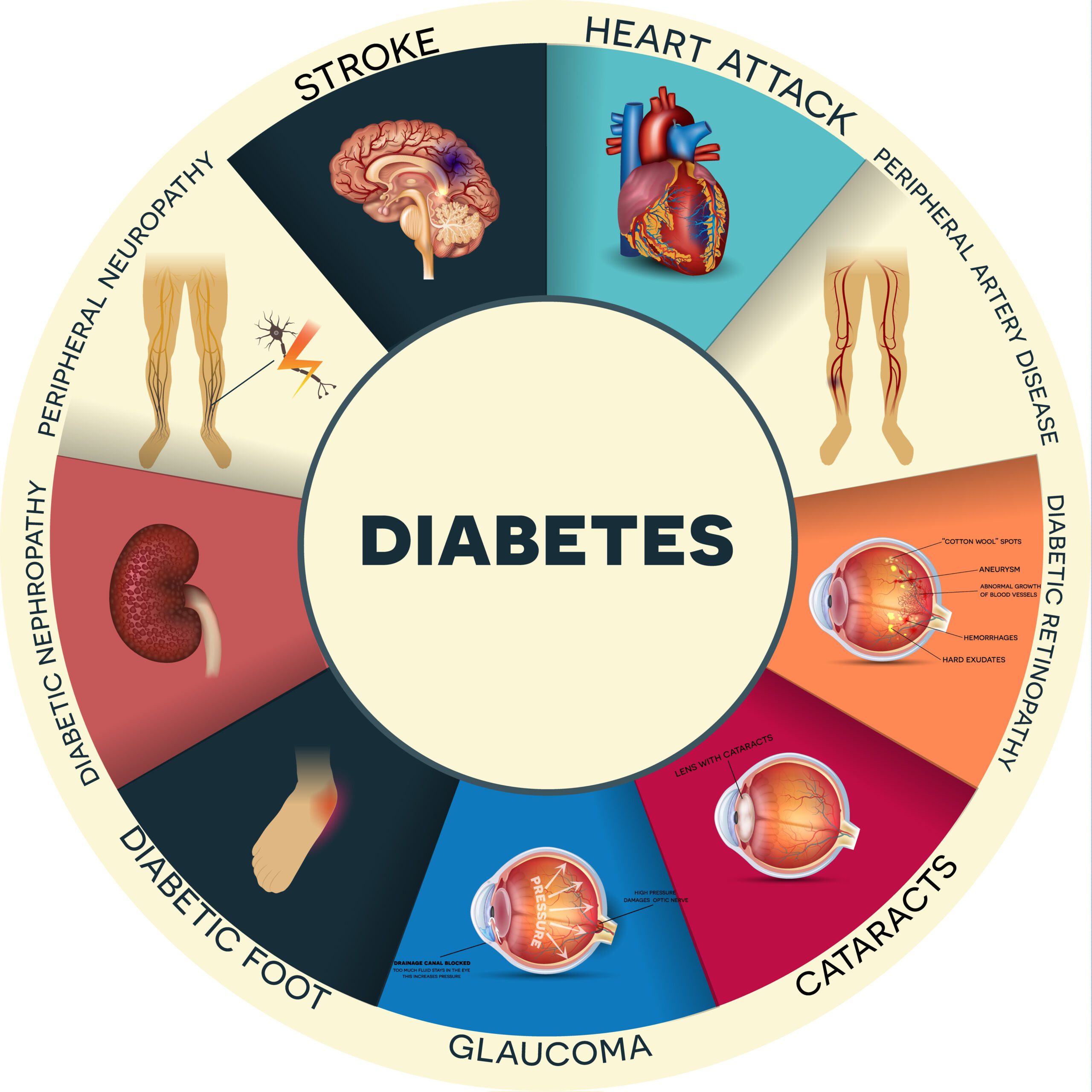Semaglutide Safety Concerns: Understanding the Overdose Epidemic with Ozempic and Wegovy
January 24, 2024
 845
845 
In the realm of weight loss solutions, semaglutide medications such as Ozempic and Wegovy have risen to prominence, heralded for their effectiveness in combating obesity.
However, with increasing popularity comes a worrying trend.
Recent data indicates a surge in reported overdoses of these medications, a development that has raised alarms within the medical community.
Between 2022 and 2023, instances of overdose have more than doubled, drawing attention to the potential risks associated with these widely used weight loss aids.
This blog aims to delve into the details of this concerning phenomenon, shedding light on the statistics and the circumstances leading to these overdoses.

The recent statistics from America’s Poison Centers paint a troubling picture of the safety landscape surrounding semaglutide medications.
Alarming Increase in Overdose Reports
According to the data, reported overdoses of semaglutide products, including Ozempic and Wegovy, have more than doubled between the years 2022 and 2023.
This significant rise in overdose incidents has sparked concerns about the broader implications of these medications’ growing use in weight loss regimens.
Nature of Overdose Cases
A closer look at these cases reveals a pattern primarily characterized by accidental therapeutic errors.
These incidents often involve incorrect dosing or misapplication of the treatment regimen.
The overdoses encompass a range of exposures, from prescription semaglutide to compounded and even counterfeit versions of the medication, indicating the breadth and complexity of the issue.
Most of these overdose instances are reported in adults, highlighting a need for increased awareness and education regarding the proper use of semaglutide products.

Semaglutide medications, including Ozempic and Wegovy, have a specific intended use and administration protocol, which, when not followed, can lead to severe complications.
Intended Use and Administration Protocol
Semaglutide is primarily used for weight loss and diabetes management.
Its effectiveness lies in its ability to regulate appetite and blood sugar levels.
The medication is administered in a low dose, which is gradually increased over a four-week period.
This cautious approach is designed to allow the body to adapt to the medication, minimizing side effects.
Risks of Improper Dosing
Jumping to a high dose of semaglutide too quickly can lead to a range of negative side effects.
These can include gastrointestinal issues, such as nausea and vomiting, and more severe health risks.
Improper dosing disrupts the body’s natural adaptation process, potentially exacerbating side effects and increasing the risk of overdose.

The rise in overdoses of semaglutide medications can be attributed to several factors, and understanding these is crucial in preventing future incidents.
Common Sources of Overdoses
One of the key reasons for overdoses is the acquisition of semaglutide from unofficial sources.
These sources may provide incorrect dosing information or counterfeit products, leading to misuse.
Another source of overdose is the use of someone else’s prescribed medication, which is particularly dangerous as the dosing is not tailored to the individual taking it.
Importance of Adhering to Guidelines
Patients are strongly advised to follow the instructions provided by both the manufacturer and their prescribing physician.
This includes adhering to the recommended dosage and administration schedule.
It is crucial to understand that the dose is typically administered weekly, not daily.
Taking it more frequently can lead to an overdose.

Understanding the symptoms and risks associated with a semaglutide overdose is critical for recognizing and promptly addressing these potentially dangerous situations.
Common Symptoms of Semaglutide Overdose
The most frequently reported symptoms of a semaglutide overdose include nausea, vomiting, and abdominal pain.
These symptoms can range from mild to severe, impacting the overall well-being of the individual.
Hypoglycemia, or low blood sugar, is another potential consequence of overdose.
This condition can be life-threatening if not treated promptly and requires immediate medical attention.
Serious Complications from Overdose
In some cases, an overdose of semaglutide can lead to gastroparesis, a condition where the stomach’s motility is significantly reduced, causing severe digestion problems.
Gastroparesis can, in turn, lead to dehydration and abnormal electrolyte levels, which if left unaddressed, can result in kidney damage.
These complications underscore the importance of understanding the proper usage of semaglutide medications.
Other risks include inflammation of the pancreas, or pancreatitis, which manifests with symptoms similar to those of an overdose, like nausea and abdominal pain.
This condition also necessitates immediate medical care.
Recognizing these symptoms and understanding the risks involved with semaglutide overdose are essential for ensuring patient safety and effective treatment.

In the event of a semaglutide overdose, knowing the right steps to take is crucial for ensuring the safety and well-being of the individual affected.
Immediate Actions and Medical Assistance
If an overdose is suspected, it is important to seek medical assistance immediately.
In some cases, symptoms can be managed at home after consulting a healthcare professional, but severe cases require immediate attention.
Symptoms like severe vomiting and hypoglycemia can lead to dangerous dehydration and electrolyte imbalances, necessitating urgent medical care.
Supportive Care in Overdose Management
While there is no specific antidote for a semaglutide overdose, the primary course of treatment involves addressing the symptoms.
This includes medications for nausea and pain, correction of electrolytes, and fluids to combat dehydration.
Treating low blood sugar is also critical and involves administering glucose or dextrose.
Overall, the care is supportive until the effects of the medication wear off.
Role of Healthcare Professionals
Healthcare professionals play a vital role in managing an overdose situation.
They provide the necessary treatment and guidance to mitigate the effects of the overdose.
It is essential for individuals taking semaglutide to have regular follow-up with their healthcare provider, especially during the initial weeks of treatment, to ensure safe and effective use of the medication.
The rise in popularity of semaglutide weight loss drugs like Ozempic and Wegovy has brought with it a concerning increase in overdoses, highlighting the need for caution and proper use.
Recapping Critical Issues
The doubling of reported overdoses between 2022 and 2023 underscores the critical need for awareness about the proper use of these medications and the potential risks involved.
Understanding the symptoms and risks of overdose, along with knowing how to manage such situations, is paramount for anyone using these drugs.
Emphasizing the Importance of Proper Usage and Education
Education and adherence to medical guidance are key to mitigating the risks associated with semaglutide medications.
It is imperative for patients to follow the instructions of their healthcare providers and to be vigilant about the correct dosage and frequency of use.
In conclusion, while semaglutide weight loss drugs offer significant benefits, they also come with responsibilities and risks.
Ensuring their safe and effective use is a collective effort that involves patients, healthcare providers, and caregivers working together to prevent and manage overdoses.

A new study suggests that a widely used sugar substitute found in diet sodas, chewing gum, and low-sugar yogurt may elevate insulin levels. This could increase the long-term risk of heart disease. “Artificial sweeteners have infiltrated nearly all types of food, making it crucial to understand their long-term health effects,” said Yihai Cao, senior author […]

Diet Coke has long been a fan-favorite among soda lovers who want a fizzy, guilt-free alternative to traditional soft drinks. While its zero-calorie, zero-sugar label makes it seem like a healthier option, the reality is far more concerning. Despite its undeniable popularity, Diet Coke’s nutritional profile has raised red flags among health experts for years. […]

New study shows that embracing an anti-inflammatory, plant-forward diet can support cognitive function and help reduce the risk of dementia. What You Eat Shapes Your Brain The food you eat doesn’t just impact your body—it also affects your brain. Research suggests that eating an anti-inflammatory, plant-based diet can help improve memory, focus, and overall brain […]